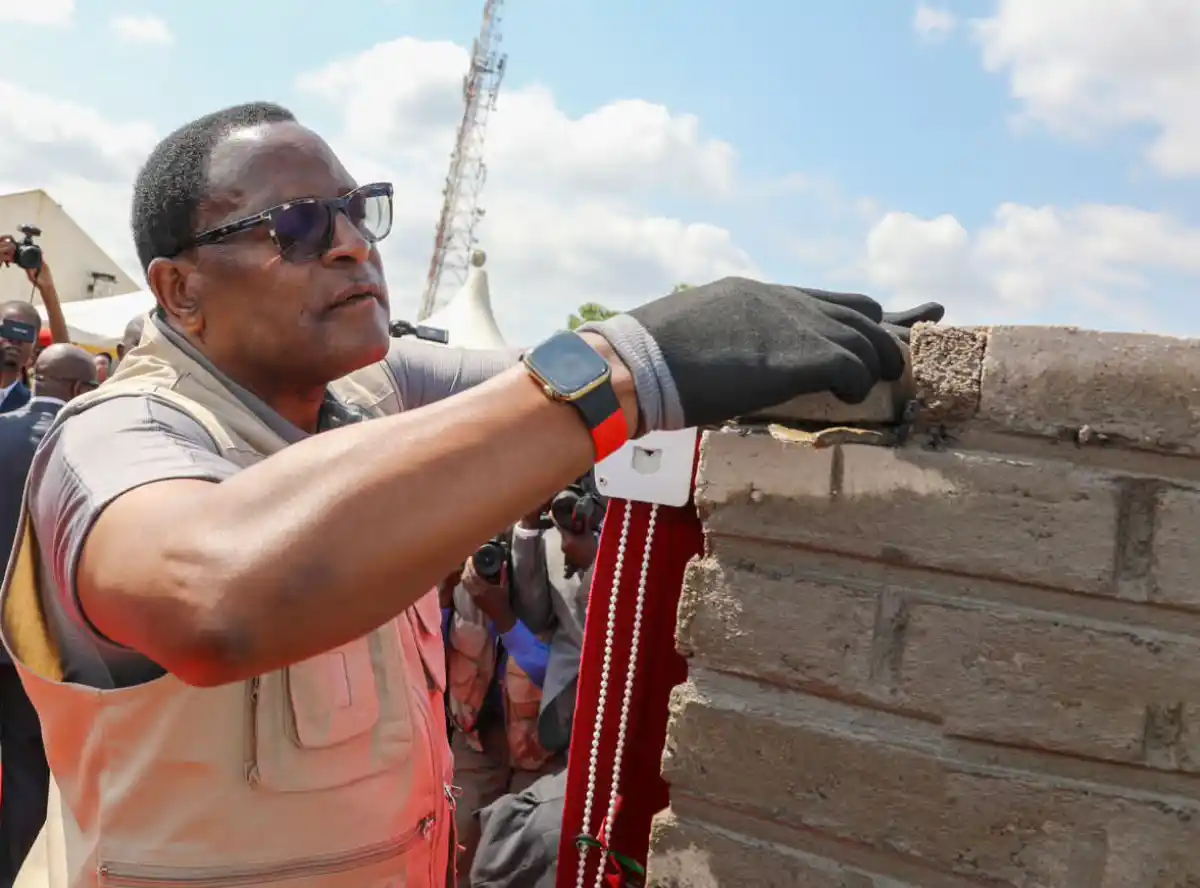

President Lazarus Chakwera Monday launched the $20.2 million (about K35.3 billion) Battery Energy Storage System (Bess) Project which seeks to store 20 megawatts (mw) excess power during day-time for use during peak hours, thereby reducing the frequency and longevity of blackouts and load shedding.
The project, the first of its kind in Africa, is being implemented by the Electricity Supply Corporation of Malawi (Escom) in partnership with the Global Energy Alliance for People and Planet (Geapp).
Bess are advanced technologies that store energy for later use, capturing excess energy generated during peak production—especially from renewable sources such as solar and wind.
The project seeks to help reduce power supply outages and improve overall grid performance by enhancing grid stability.
Speaking when he launched the project, Chakwera said, over the past four years, his administration had worked hard to put an end to perennial blackouts in the country.
“Even when Tropical Storm Ana caused severe damage to the Kapichira Power Plant and cost us one third of our power supply, we worked very hard to restore this plant and managed to get it operational again within a year, thus keeping Malawi a blackout-free country.
“And for the first time in recent memory, the Electricity Supply Corporation of Malawi even announced that we had more electricity supply than there was demand for,” he said.
The Malawi leader was quick to express dismay over increased cases of vandalism of Escom infrastructure.
“Sadly, of late we are seeing some communities that have electricity supply being plunged in blackouts caused by vandalism that targets Escom poles and other infrastructure to disrupt power.
“This is happening in different parts of the country, and it is not even being done for commercial reasons. Escom is finding poles cut down and left abandoned by people whose only reason is clearly to sabotage the progress we are making to provide electricity to Malawians,” Chakwera said.
He observed that a few weeks ago, an Escom pole was vandalised just outside the State Residence with the aim of cutting power supply to the State House.
According to Chakwera, even more recently, 11 Escom poles were vandalised between Kafere and Magomero inside Dzalanyama forest, and yet nothing was taken, clearly indicating that this was purely an act of sabotage.
“So today I want to appeal to all Malawians to be vigilant against vandalism because the Escom assets that are being destroyed to sabotage development are assets that belong to all Malawians and their destruction negatively affects all Malawians.
“I also call on the Malawi Police Service to ramp up its surveillance of these assets and to double its efforts in investigating all acts of vandalism because we cannot have the rule of law if the people who are committing these crimes are allowed to go scot-free.
“It is this sense of ownership of our nation’s development and our collective preservation of these assets that will demonstrate to partners like Geapp that we do not take their generosity for granted,” Chakwera said.
On his part, Escom Board Chairperson Morgan Tembo described the launch as an auspicious moment for Escom, saying the project marks a pivotal stage in the corporation’s strategy to improve the reliability and accessibility of electricity across the country.
Tembo said, just like a power bank, the Bess Project captures excess energy generated during periods of low energy utilisation which can later be used during peak hours.
Geapp Vice President Joseph Karanja Nganga said the Bess Project reflects the spirit of ambition and innovation championed at the Africa climate summit and reinforced at the just ended United Nations Climate Conference in Baku, Azerbaijan, where the world committed to 1,500 gigawatts of battery energy storage.
“It is proof that Malawi is not merely a participant in the global climate agenda,” Nganga said.
In his remarks, Energy Minister Ibrahim Matola said the Bess Project replaces diesel generators that government used to hire from Aggreko at $78 million per month up to 2021.
Matola told Chakwera that Aggreko was taking billions of Kwacha out of Malawi.






0 Comments